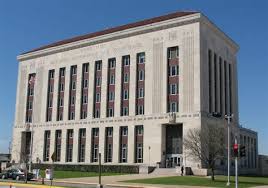The Enduring Legacy of John F. Kennedy (JFK)

Introduction
John F. Kennedy, the 35th President of the United States, has left an indelible mark on American history since his tragic assassination in 1963. His presidency came at a pivotal time marked by the Cold War, civil rights movements, and significant social change. JFK’s impact continues to resonate today, making his life and presidency a vital area of interest and relevance.
Key Events During JFK’s Presidency
John F. Kennedy served as president from January 1961 until his assassination in November 1963. His administration was characterized by several key events that shaped both domestic and international policy. The Cuban Missile Crisis in 1962 was a particularly defining moment, as it was a 13-day confrontation between the United States and the Soviet Union over Soviet ballistic missiles deployed in Cuba. The crisis brought the world closer to nuclear war and underscored the importance of diplomacy and communication between superpowers.
Domestically, Kennedy was a proponent of civil rights, advocating for racial equality and social justice. His famous speech advocating for civil rights delivered in 1963 laid the groundwork for future legislation, including the Civil Rights Act of 1964. Additionally, Kennedy’s establishment of the Peace Corps exemplified his commitment to international peace and development.
The Significance of JFK’s Legacy
JFK’s charisma and inspirational leadership style have contributed to his lasting legacy. His vision for America, encapsulated in the phrase ‘Ask not what your country can do for you, ask what you can do for your country,’ continues to inspire civic engagement and public service. Numerous studies and surveys consistently show that Americans view JFK favorably, often ranking him among the top U.S. presidents.
As we approach the 60th anniversary of his assassination, discussions surrounding JFK’s impact remain relevant. With current political divisions, many draw parallels between Kennedy’s calls for unity and civic responsibility and the challenges faced by contemporary leaders. The examination of JFK’s policies, leadership qualities, and historical significance continues to inform and inspire future generations.
Conclusion
The legacy of John F. Kennedy serves as a testament to the power of leadership during times of uncertainty. His efforts to advocate for civil rights, international diplomacy, and public service resonate with contemporary society. As the world grapples with similar challenges in the 21st century, JFK’s vision remains an important reference point for promoting unity and progress. Understanding JFK’s contributions allows us to appreciate the complexity of his presidency and the enduring values he championed.







